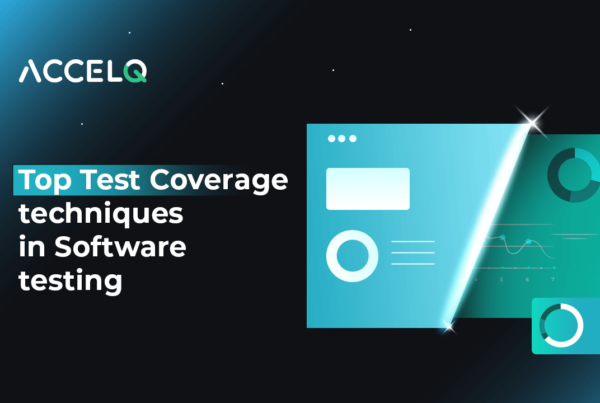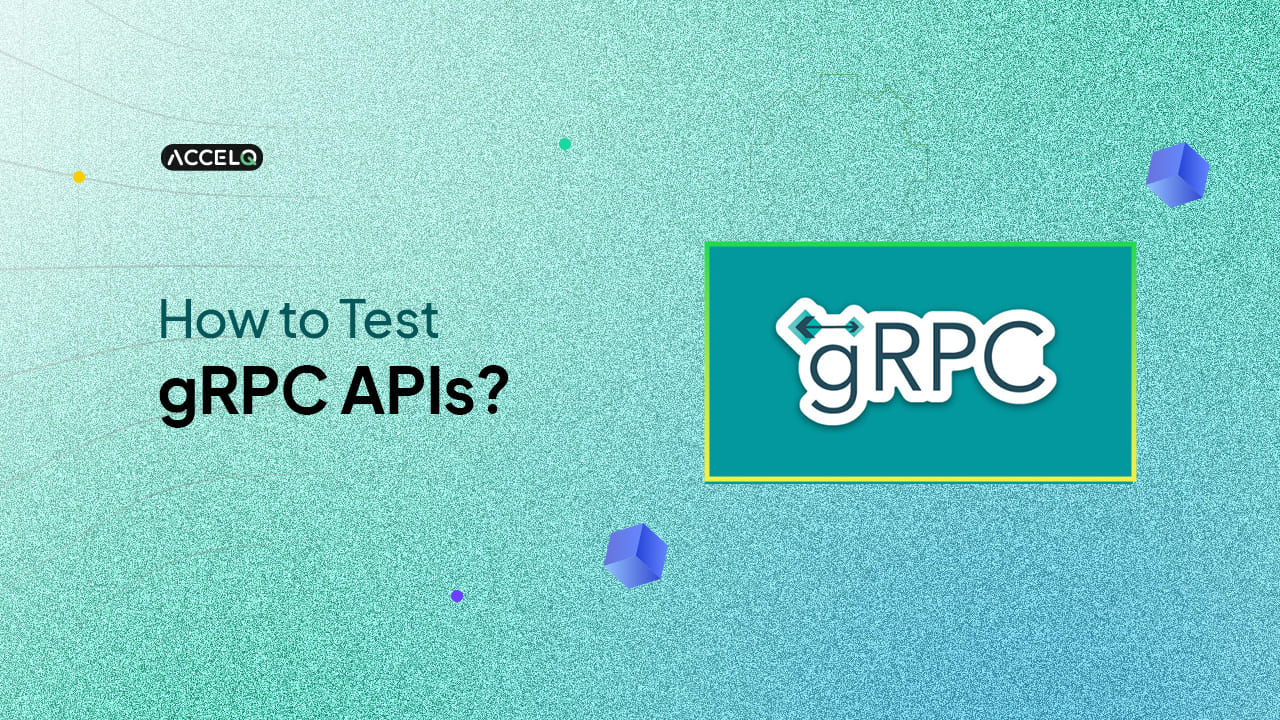How to Test gRPC APIs?

gRPC (gRPC Remote Procedure Call) is an open-source framework that facilitates smooth remote procedure calls. This helps in building scalable APIs and services. Testing is important to ensure the reliability and productivity of gRPC APIs. Let's understand how to test gRPC API’s and the best approaches for achieving the desired outcomes.
Writing Test Cases for gRPC APIs
Understanding gRPC Service Definitions
gRPC services are defined using Protocol Buffers. It describes the structure of the data and the RPC methods. A typical proto file includes message types and service definitions. Understanding these definitions is crucial for writing effective test cases. Let's break down the key components of a gRPC service definition:
- Syntax – It specifies the version of Protocol Buffers to use. For most modern applications, proto3 is recommended.
- Package – It helps to organize your protobuf definitions and avoid naming conflicts. It acts like a namespace in other programming languages.
- Service – It defines a gRPC service. A service is a collection of RPC methods wherein each method specifies the request and response types.
- Messages – Data structures used by the RPC methods. They are defined using the ‘message’ keyword. Each field in a message has a name, a type, and a unique number. These fields can be primitive types (like strings and integers) or other message types.
How to Create Test Cases for gRPC Testing?
Creating test cases for gRPC testing involves defining the inputs and expected outputs for the RPC methods. Each test case should cover various test scenarios, including normal operation, edge cases, and error conditions.
Steps to create test cases:
- Identify the RPC methods: List all the RPC methods defined in the proto file.
- Define test scenarios: For each method, identify different scenarios such as valid inputs, invalid inputs, and edge cases.
- Set expected outcomes: Determine the expected response or error for each scenario.
Request and Response Structures
Learning the structure of requests and answers is critical to developing reliable test cases. The proto file will specify each RPC method's request and response messages. Check that the request is accurately formatted and that the answer matches the anticipated values.
Handling Different Data Types
gRPC and Protocol Buffers support several data types, including integers, strings, nested messages, enums, etc. Your test cases must handle these data types, including message serialization and deserialization.
Automated Testing for gRPC APIs
Setting Up Automated Test Scripts
Automating gRPC test scripts requires the use of gRPC-compatible testing frameworks and packages. Popular options include gRPC's built-in testing tools and additional libraries.
Steps to set up automated test scripts:
- Choose a testing framework: Select a framework compatible with your development environment.
- Write test scripts: Implement test cases as automated scripts using the framework’s features for setup, execution, and verification.
- Run tests: Execute the test scripts to validate the gRPC services.
Integrating Tests into CI/CD Pipelines
Integration with CI/CD enables tests to be executed immediately whenever changes are made in the gRPC API. This helps to identify issues early on and maintain the integrity of your APIs.
Steps to integrate into CI/CD:
- Set up a CI/CD tool: Use tools like Jenkins, GitLab CI, or GitHub Actions.
- Configure test execution: Add steps in your pipeline to execute the gRPC test scripts.
- Monitor results: Ensure test results are reported and failures are addressed promptly
Best Practices for gRPC Testing
Comprehensive Test Coverage - Ensure your test cases cover all aspects of your gRPC API, including:
- All RPC methods
- Different input scenarios (valid, invalid, edge cases)
- Error handling and exceptions
Handling Schema Changes
Schema changes in the proto files can impact your gRPC services and tests. Use version control for your proto files and ensure that tests are updated accordingly. Consider backward compatibility when making changes.
Mocking gRPC Services for Isolated Testing
Mocking allows you to simulate gRPC services, enabling isolated testing without relying on actual service implementations. This is useful for testing client-side logic and handling various responses and errors.
Continuous Testing Strategies
Implement continuous testing strategies to ensure ongoing quality:
- Automate test execution in CI/CD pipelines
- Run tests frequently to catch issues early
- Run regression testing to make sure that new changes don’t break existing functionality
Conclusion
You can effectively test your gRPC APIs by following these steps and best practices. Leveraging AI-enabled gRPC tools can help you streamline and accelerate the testing process in addition to saving costs and labor. ACCELQ, our AI-driven automated testing platform, can be your reliable partner in setting up a comprehensive gRPC testing process. To know in detail get a free demo.
Geosley Andrades
Director, Product Evangelist at ACCELQ
Geosley is a Test Automation Evangelist and Community builder at ACCELQ. Being passionate about continuous learning, Geosley helps ACCELQ with innovative solutions to transform test automation to be simpler, more reliable, and sustainable for the real world.
Discover More
 Test-Driven Development (TDD): A Comprehensive Guide
Test-Driven Development (TDD): A Comprehensive Guide
Test-Driven Development (TDD): A Comprehensive Guide
 Top Test Coverage techniques in Software testing
Top Test Coverage techniques in Software testing

































